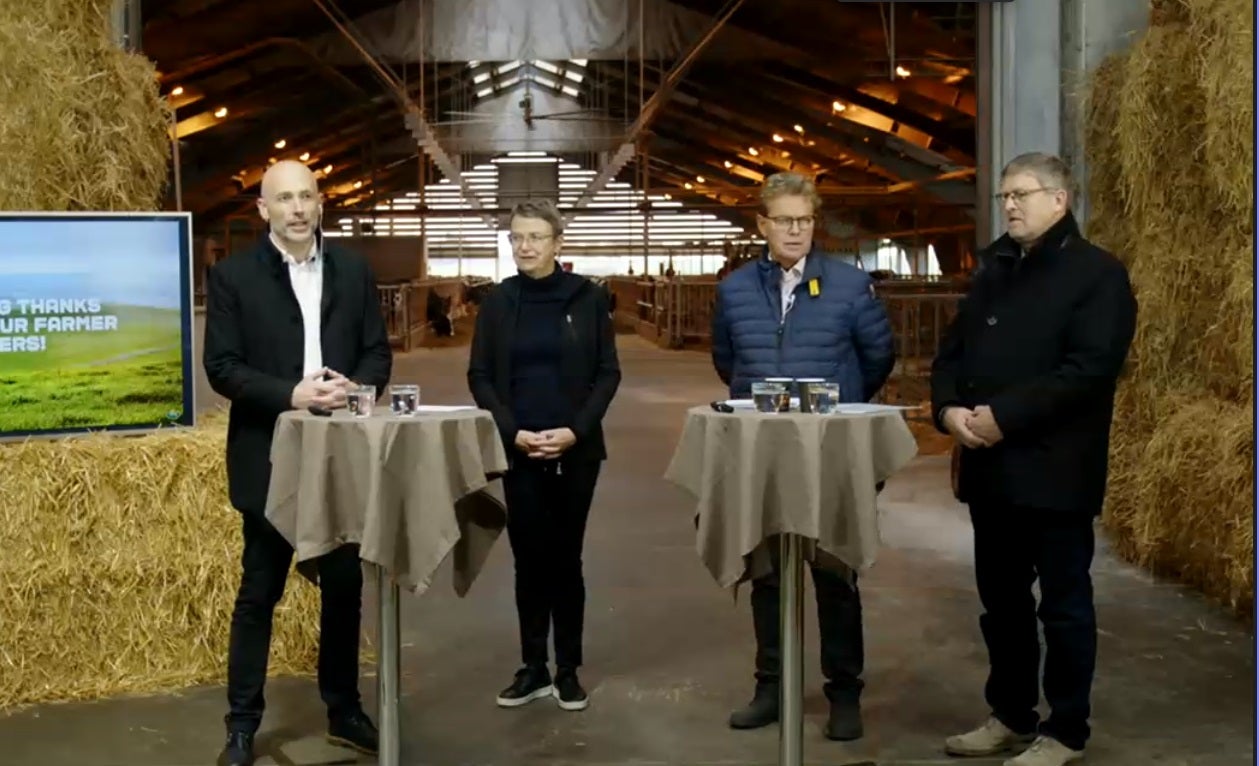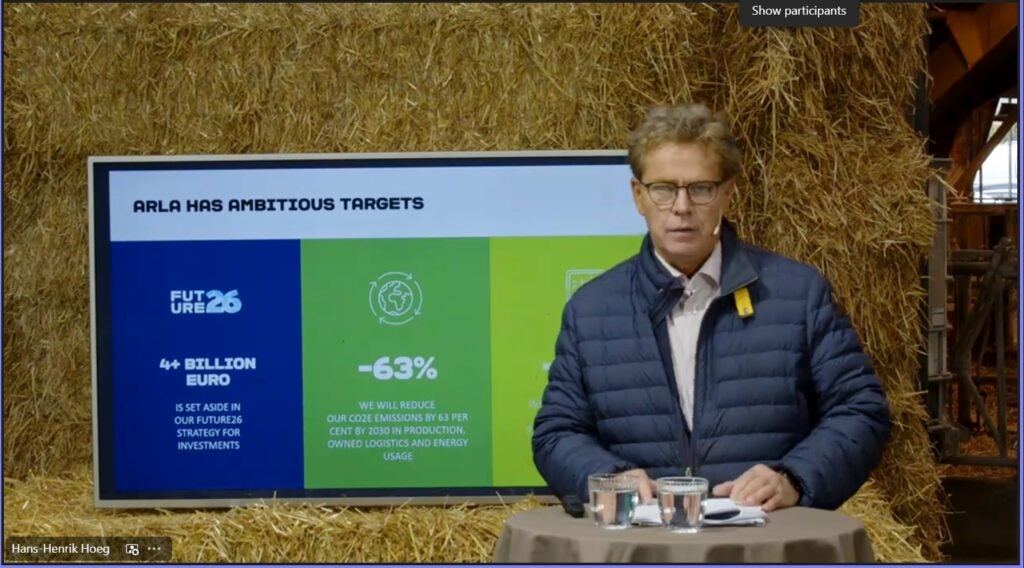
A sustainability initiative has been launched by international dairy cooperative Arla Foods to encourage farmers to lower their carbon footprint.
From 2023, the price farmers receive for their milk will be impacted by their sustainability credentials.

Discover B2B Marketing That Performs
Combine business intelligence and editorial excellence to reach engaged professionals across 36 leading media platforms.
Arla’s 8,900 European members will be judged on a points system, gaining credits for things like fertiliser use, biodiversity work, renewable electricity and the green credentials of their feed.
The Cravendale owner has a Scope 3 target of aiming to reduce greenhouse gas emissions at farm level by 30% by 2030.
CEO Peder Tuborgh told a press conference this morning: “From next year, the milk price that individual farmers will receive will depend on their activities related to their environmental sustainability profile. It is not only fat, protein and quality.
“These parameters have been part of our milk price model for many years and have served us very well. Now, we are adding the sustainability (or the climate) component to it. To my knowledge, no other company in the world is doing that in the way that we’re suggesting.”

US Tariffs are shifting - will you react or anticipate?
Don’t let policy changes catch you off guard. Stay proactive with real-time data and expert analysis.
By GlobalDataBased on the cooperative’s current milk volumes, it estimates the incentive will cost up to EUR500m (US$489m) annually. In the first full year, at least $264m is expected to be distributed through the monthly milk price.
Each point gained will give the farmer EUR0.03 per kilo of milk. Activities with “bigger improvement potential for climate and nature” will lead to the most points.
Farmers will also be rewarded for green initiatives they have already implemented, so many will start the programme with points in the bank.
Arla calculates that for its average farmer, with an average annual milk production of 1.2m kg, approximately $25,400 of the milk price will be earned via sustainability activities.
The Denmark-headquartered group predicts the scheme, developed in collaboration with farm owners, should not cost the farmer – and admitted it would be difficult to get them on board if the incentive offered did not cover the cost of meeting the climate targets.

In answer to a question on costs from Just Food, Tuborgh said: “The three euro cent that we put in place here is not far away from actually the cost of travelling the journey. There will be things that farms have to invest in and there will also be on costs as you go into the model.
“Some of the activities, especially on the big five (feed efficiency, fertiliser use, land use, protein efficiency and animal robustness), will actually come with a cost reduction on-farm. But, when we put it all together, it’s not too far away from the three euro cent that we’re putting on the table here. It’s also correlated like that because, otherwise, farmers would not travel this if the incentive was not covering the cost.
“And, of course, at the moment we have this extreme-inflation situation and it looks very different from when we calculated it six months ago but we believe that model is robust with the three euro cent. That is not far away from the actual costs for travelling towards 2030.”
Two years ago, Arla implemented a comprehensive “climate check” programme on 8,000 farms across seven European countries, incentivising farmers by adding EUR0.01 per kilo of milk for submitting their climate data. This scheme is in addition to the climate-check incentive.
Arla said over 99% of its milk production is part of the climate check.
“We believe that dairy plays a big role in feeding the world, not only now but also in the future,” Tuborgh said. “And we also believe that the bigger companies within the dairy sector, like Arla Foods, have big responsibilities, and we need to take action and lead the industry.”





